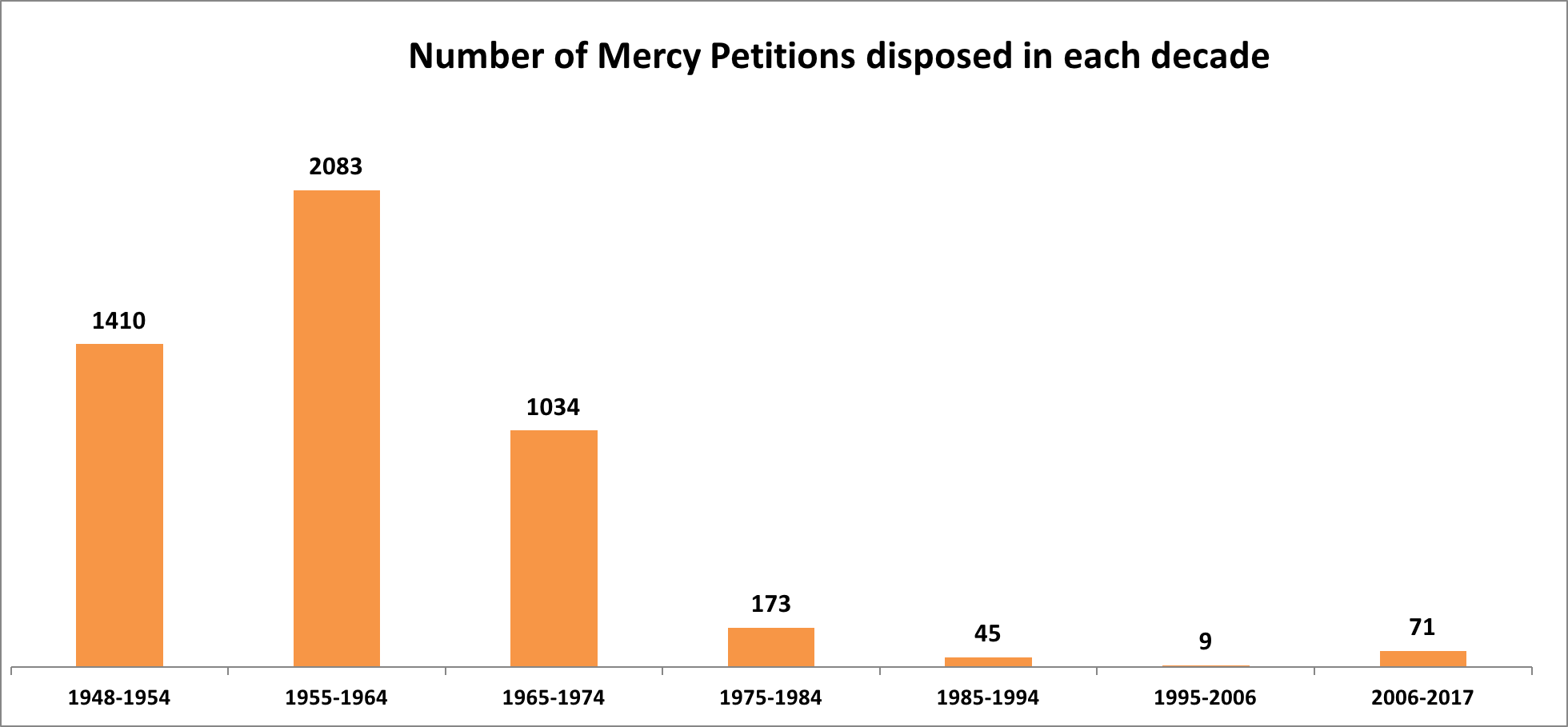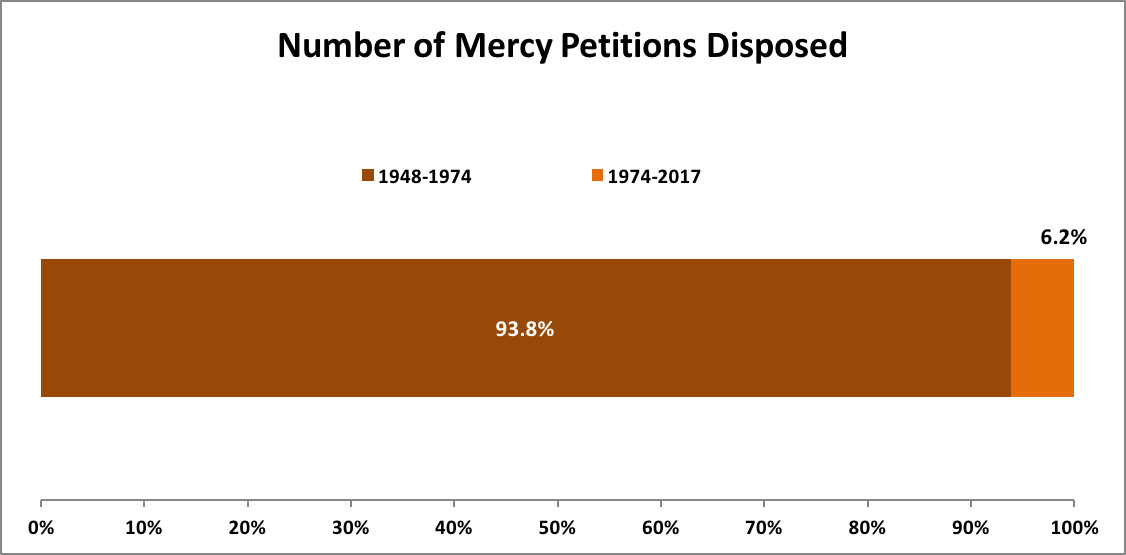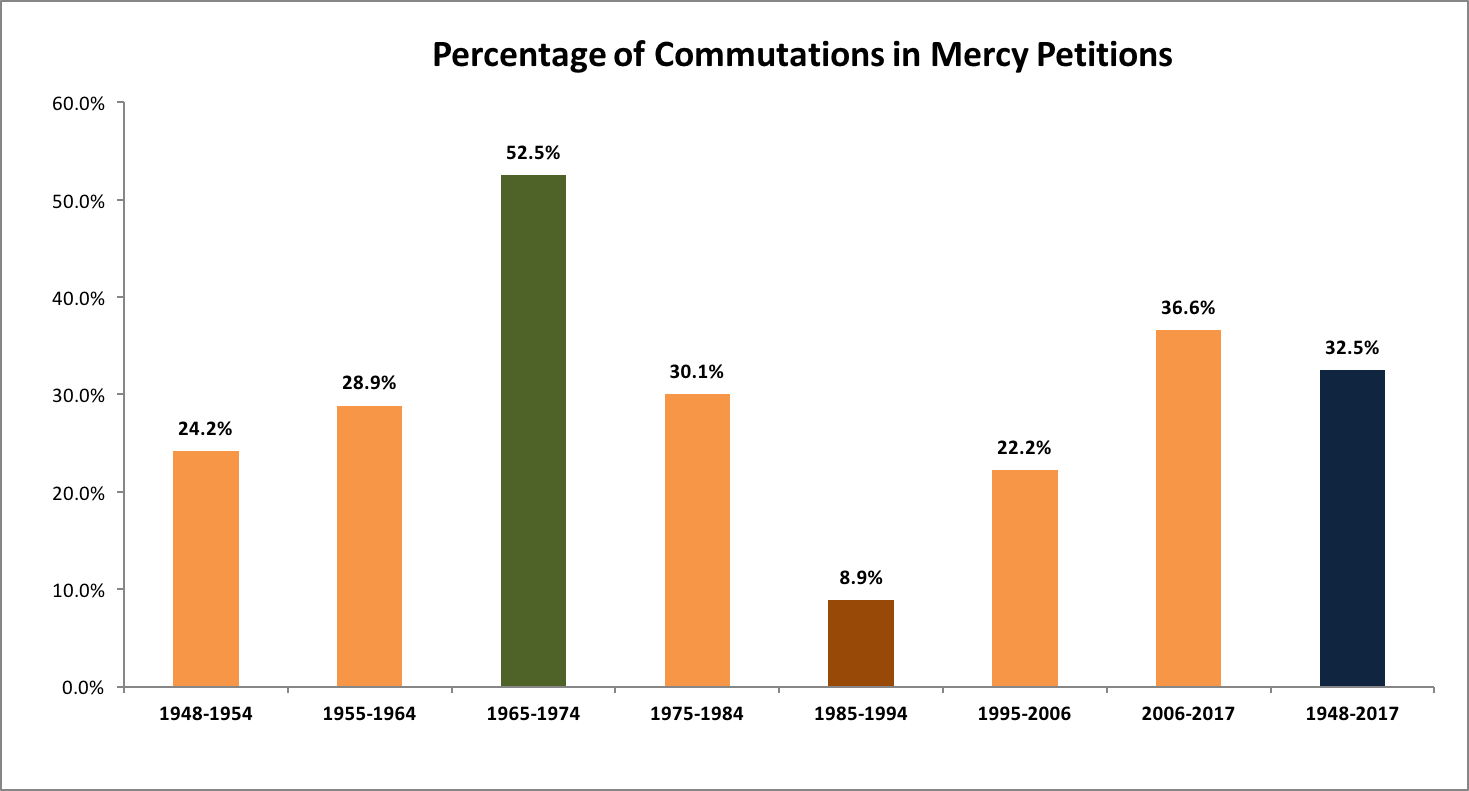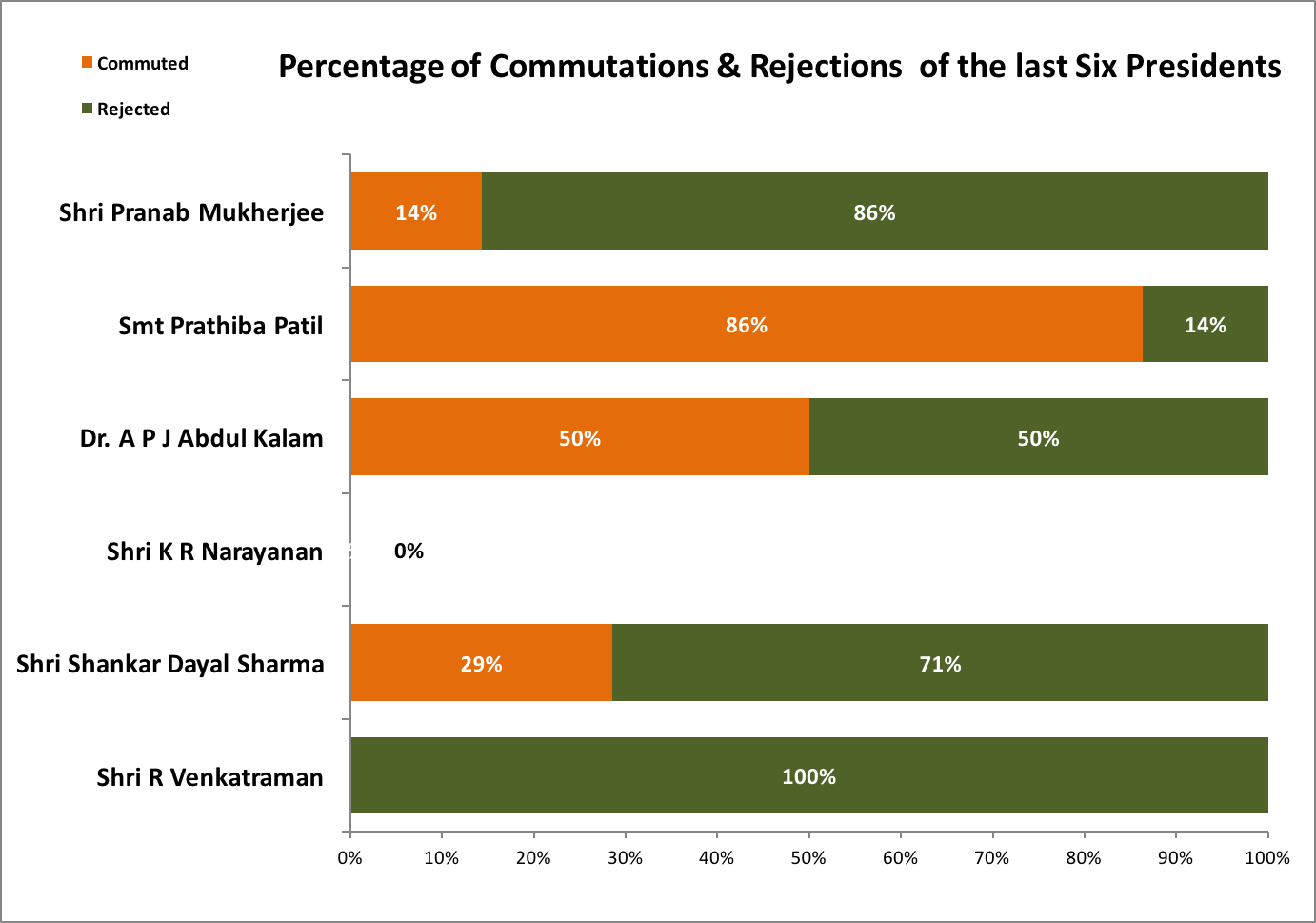[orc]As Shri Pranab Mukherjee is nearing the end of his term as the President, we look at the way various Presidents have dealt with the mercy petitions. While some presidents were kinder, others were not. However, there is no consistency in the decisions taken by different Presidents.
As Shri Pranab Mukherjee is nearing the end of his term as the President, we look at the way various Presidents have dealt with the mercy petitions. Historical data on mercy petitions clearly indicates that different Presidents have acted differently in dealing with mercy petitions. While some chose the path of commutation in majority cases, others rejected majority of the petitions. Since 1948, a total of 4825 mercy petitions are disposed by the President of India out of which 3256 are rejected. In 1569 petitions, the death penalty was commuted to life sentence.
The Mercy Petition
Under Article 72 of the Constitution, the President has the power to grant pardon and decide on mercy petitions. The article does not put any limitation on the time within which this power has to be exercised. But, the Supreme Court has observed in certain recent cases that delays in disposal of mercy petitions may be minimized and that the condemned prisoners have a very pertinent right in insisting that a decision in the matter be taken within a reasonable time.
Though it looks like the President holds the power, former President Smt. Prathiba Patil in a well known press release issued in 2012, said that the President takes the decision only with the aid and advice of the Government of India as per Article 74 of the constitution.
Numbers through the Decades
As per information available with the Government and data compiled by Bikram Jeet Batra in his book ‘Court of Last Resort’, the number of mercy petitions filed & disposed by the President of India has come down drastically in the last four decades.
 More than 1000 mercy petitions were disposed in each of the first three decades after independence i.e., 1948-1954, 1955-1964 & 1965-1974. Since 1974, the number of mercy petitions filed & disposed has come down drastically. It has come to such a low that only 9 petitions were disposed during 1995-2006. Shri K.R.Narayanan & Dr. A P J Abdul Kalam were in the Rashtrapathi Bhavan during this period.
More than 1000 mercy petitions were disposed in each of the first three decades after independence i.e., 1948-1954, 1955-1964 & 1965-1974. Since 1974, the number of mercy petitions filed & disposed has come down drastically. It has come to such a low that only 9 petitions were disposed during 1995-2006. Shri K.R.Narayanan & Dr. A P J Abdul Kalam were in the Rashtrapathi Bhavan during this period.
The numbers are so skewed that 94% of all the mercy petitions were disposed in the first 26 years while a mere 6% were disposed in the 43 years after that. According to Bikram Jeet Batra, the decline in death sentences in general could be due to the impact of the new CrPC, 1973 which made life imprisonment the ordinary punishment for murder and death sentence the exceptional punishment. He also says that in the late 1970s and the early 1980s, the death penalty was a subject of great controversy in the Supreme Court which led to the landmark Bachan Singh formulation of the death penalty being awarded only in the ‘rarest of rare’ case. This looks like a plausible explanation since the number of death sentences and the subsequent number of mercy petitions to the President have come down drastically after the 1970s.
 Rejections & Commutations
Rejections & Commutations
There seems to be no uniformity in either the rejection of mercy petitions or commutation to life sentence. A look at the percentage of commutations since independence substantiates this conclusion. While commutations accounted for 24% of the decisions in the first few years after independence, these accounted for 29% from 1995-1964. The greatest percentage of commutations (more than 50%) was in the period 1965-1974 when Shri V V Giri & Dr. Zakir Hussain were in the Rashtrapathi Bhavan. Since then, the proportion of commutations has been fluctuating based on the President in office. The least percentage of commutations (8.9%) was in the period 1985-1994 during Shri R Venkataraman’s presidency. This percentage rose to 36.6% during 2006-2017 primarily because of the 19 commutations by Smt. Prathiba Patil.

Different Presidents – Different Decisions
| Name of the President | Total Disposed | Commuted | Rejected |
|---|---|---|---|
| Shri R Venkataraman | 40 | 0 | 40 |
| Shri Shankar Dayal Sharma | 14 | 4 | 10 |
| Shri K R Narayanan | 0 | 0 | 0 |
| Dr. A P J Abdul Kalam | 2 | 1 | 1 |
| Smt Prathiba Patil | 22 | 19 | 3 |
| Shri Pranab Mukherjee | 49 | 7 | 42 |
A cursory glance at the data for the last six Presidents reveals the inconsistency in the decisions involving mercy petitions. While Shri R Venkataraman rejected all 40 mercy petitions during this tenure, Smt. Prathiba Patil rejected just 3 of the 22 petitions disposed by her. Shri Pranab Mukherjee on the other hand rejected more than 85% of the mercy petitions disposed by him. Shri K R Narayanan did not dispose even a single petition during his tenure while Dr. A P J Abdul Kalam disposed only two during his tenure,rejecting one and allowing commutation in the other. Shri Shankar Dayal Sharma rejected 70% of the petitions while allowing commutation of the death sentence in the remaining 30%.
Shri Pranab Mukherjee decided on the mercy petitions by 49 convicts, rejecting 42 of them and commuting the death sentence to life imprisonment in the remaining 7. As per the Rashtrapathi Bhavan website, there is not a single mercy petition pending with the President now. The new President will not have to deal with any pending mercy petitions.

Featured Image Source: https://www.flickr.com/photos/matthigh/




3 Comments
Pingback: Why Law Commission Says End Death Penalty In All But Terror Cases | Dharam Prakash Singh (Advocate) Civil Court- Mohammdi Kheri
Pingback: story of Mercy Petitions in India | freedomsism
Pingback: Death Penalty and Clemency - iPleaders